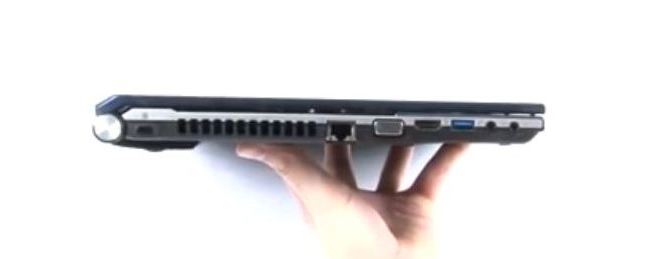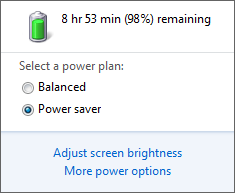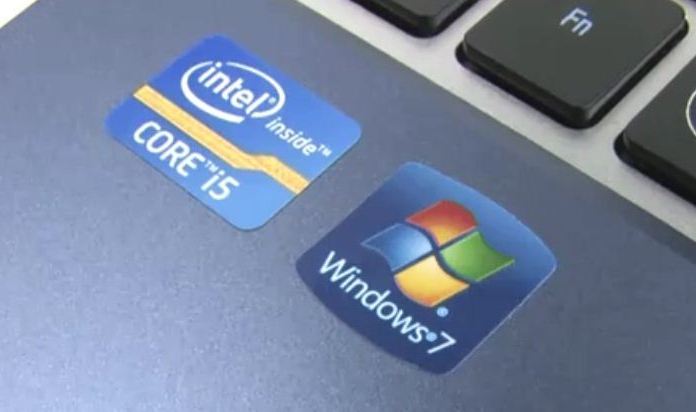
Laptops and smartphones are everyday need of today’s life. If rewind nearly a decade or two back, There were not much options in buying a laptop. Not only options, but they were very heavy and expensive also. But, thankful to latest technology which make today’s laptop lighter, faster and inexpensive. Today, there’re vast options available in buying a laptop. But, buying a laptop in today’s market becomes a bit of challenge.
In fact, laptops are designed to full-fill in every aspect or they are made for every field of computing. There’re laptops for desktop replacement, light-weight, high-end laptops and notebooks for light weight business works. The only thing you have to do is to decide what you need based on your requirement.
To make your laptop buying easy, read the points below which guides you in buying your perfect laptop for easy hassle-free computing.
1. Check Your Usability
First you have to know why you’re buying a laptop. Check you usage criteria, what you want to do on your laptop. What you want to run on your system. Is it for doing simple tasks like PowerPoint presentations, takes notes etc. Or do you plan to play high-end games and HD movies. It’s all up-to you to select the usage area.
Second thing you should consider is your budget, how much you can spend on buying a laptop. Select the best system according to usage in your budget range. If you need laptop for making presentations and other office works then, you can easily get a budget laptop under $1000. Even some manufacturers provide gamers and HD series laptops under this range.
Another factor is do you want Apple’s MacBook or PC? Apple’s laptops are expensive than PCs. Apple’s MacBook air models starts at $1000 adding more pennies for MacBook pros and large ones starts from $1800. In PC category there’re lots of choices available.
2. Portability

Portability is the major factor you should consider. It directly affects your usability of laptop. There are four common sizes in laptops. 13-inch, 14-inch, 15-inch and 17-inch.
13-inch models are light weight, portable and has lower resolution screens. This category of notebooks are handy for user who want to do internet, writing notes and want to do business work. But you have to compromise with DVD Drives, slower processor and small screen size.
14-inch models are best in it’s category. They are portable and also have Optical-Disk drives. Resolution range is about 1366×786 pixels. Even some models comes with dedicated graphics memory also.
15-inch and 17-inch laptops are comes in the large laptops category. They are good for watching videos and have higher resolution than 13-inch and 14-inch models. But they are not best in portable class.

3. Battery Life
You should consider battery life if you are mobile most of the time of your day life. But if you are buying a laptop for desktop replacement, means you placing it on the desk then battery life is not a major consideration if not, then you have to pay attention on how long laptop battery will last.
You should buy a laptop with long battery backup. Today manufacturers pay more attention on battery life and design. Laptops are becoming sleeker and lighter and comes with non-removable batteries. Some designers makes laptops with 8+ hours battery backup like Acer timeline series notebooks. You can consider them for whole-day outdoor computing.
4. Storage and Memory

In storage, there are two types of storage available – SSD(Solid State Drive) and HDD(Hard Disk Drive).
SDD storage is more reliable and fast storage media. But can be costly and can not store the same amount of data as traditional hard drives. Because they don’t have any moving parts and so consume less power and faster than HDD. The only downside of SSD is they are expensive and don’t offer as much data storage.
Inexpensive HDD runs without any problem in systems from years. The only consideration now is storage space. If you want to store large files like movies, videos and other large files then, consider 500+ GB storage and if you use cloud storage then a small storage can works.
RAM(Random Access Memory) is a part of your PC where every bit of software running on your system is stored. The more RAM you have, better it is for your PC. You can also upgrade it later after purchase of laptop but check for manufacturer if they support upgrade option.
5. Ports and Connectivity

Ports are the parts of a system where you can connect external devices to your laptop. There are various ports on a laptop which you should consider before buying a laptop.
USB is the default data transfer port which every computer have but, do you aware that a faster version of USB 3.0 is also available on some laptops. It is 10 times faster than previous version.
HDMI port is useful to connect your laptop to HDTV. You should consider this port if you want to connect your laptop to TV. But an alternative to connect to bigger display is VGA port which lets you connect laptop to external monitor.
Other ports you can check are SD card slot for downloading content from digital cameras, Ethernet port for internet and built-in Wi-Fi for wireless network connection. Some laptops also comes with built-in Bluetooth to wirelessly connect digital gadgets to your laptop. You have to check whether there’s additional slots for RAM available for later upgrading .
6. Processor

You can say computer processor is the backbone of computer system. It is responsible how efficiently computer programs run, multi-task and all processing within a modern computer system.
Most of the PCs run on Intel processors. Every time Intel release new processor manufacturers release laptops with latest processor. Ultraportable laptops runs on ultra-low voltage processors. Dual core processors are capable of multi-tasking, playing 1080p HD videos and other graphics software programs.
GPU(Graphics Processing Unit) is useful in playing HD content, Graphics editing and running games. Some laptops comes with integrated graphics card where as others comes with dedicated one. Dedicated graphics chips are important for playing HD games.
7. Need an Optical Disk Drive

USB drives down the usage of optical drives but, if you watch DVDs on your PC or need to burn DVDs or CDs then you should consider optical drive and there are number of laptops that comes with CD/DVD drives. You can also consider Blu-ray drives if you need to work with Blu-ray disks.
8. Security Features
There’s always a risk when storing digital information on laptops, and laptops are much easier to steal. To keep it in mind some laptops are designed with security features such as, fingerprint scanners to login to system and Kensington security slots to tie your laptop to a table or your wrist while traveling. Durability is also comes under security in terms of protecting your data from any physical damage.
9. Warranty and After Sales Services
Warranty is the another factor to protect your spending on device you purchased. If you are accident prone and want a long warranty then you can opt out for it by spending some extra few dollars depending on the type of warranty you want.
You should also check after sales services of the company. You can check reviews, Google it for. Choose the best reviewed company.
10. Check Reviews
Last and important point before buying your new laptop is to Google it and check reviews and discussion forums. Do not rush into buying the laptop right at the release, wait and watch so that you have enough time to know the pros and cons about your laptop before it will be in your hands.

Comments